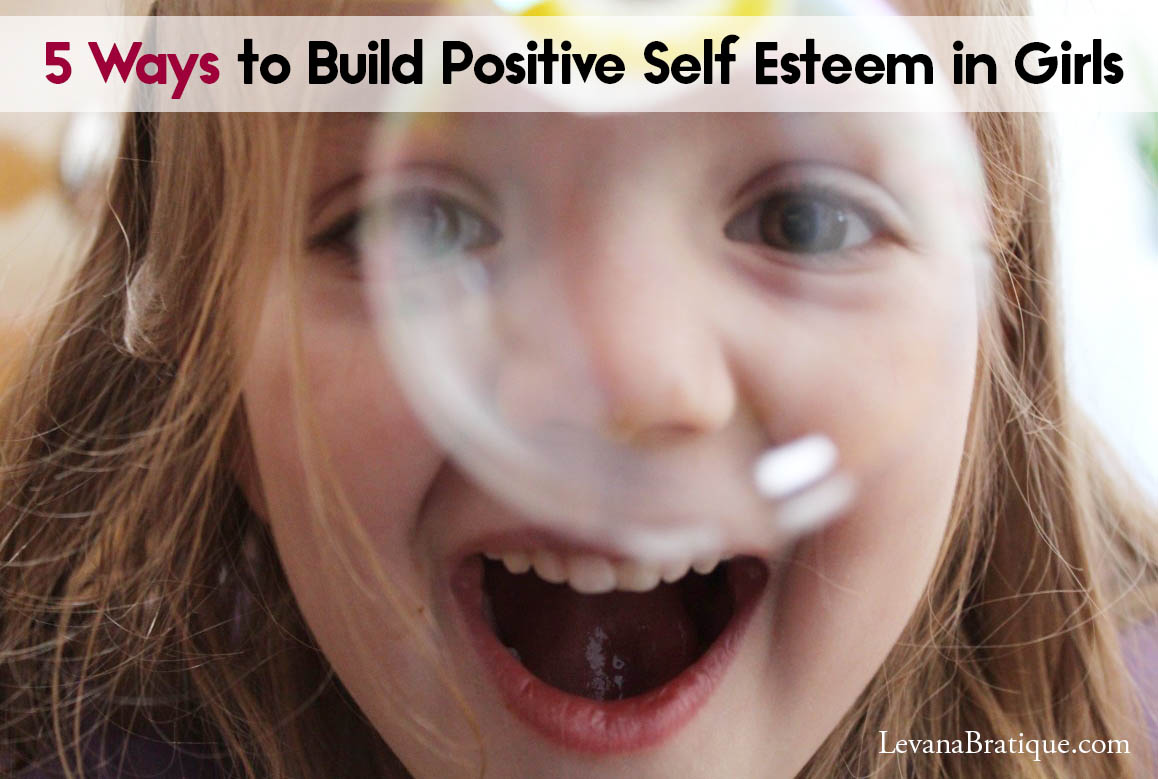5 ways to help build positive self esteem in girls
26th Feb 2019

On a whim one recent morning, I asked my daughter to name some things she liked about herself, and her list was impressive and varied: "my hair, I’m a good climber, I can whistle, I’m a good sister, I’m courageous, I’m awesome". When I asked her if there was anything about herself that she didn’t think was awesome, she looked at me like I was crazy and practically shouted ‘No!’. Her confidence delighted me: "Of course I’m awesome, mama," she inferred, "what’s not to love?" At 5, she should love herself. If only she can hold onto that level of self esteem at 15, 35, 60…
According to statistics, a young girl’s self-esteem peaks at nine. Nine! How alarming is that? There are plenty of factors that affect the development of self esteem; some we don’t have much control over, like our basic temperament, and some that we do. Since self esteem is also a social process, how we come to view ourselves is heavily influenced by how others see and treat us. This applies to us as individuals of course, but we’re also seeing and internalizing how others within our gender, race, and family structure are viewed and treated.
Even with the recent trend toward body positivity and embracing broader standards of beauty, a girls value in our culture is still intricately tied to her looks. While a decade ago avoiding TV and magazines would eliminate most of the heavily manipulated images that gave a distorted view of reality, now, thanks to filters like Facetune, everyone has access to editing perfection at their fingertips. We’re subconsciously comparing ourselves to (and falling short of) those digitally enhanced images all day, every day. Research shows that body image correlates with physical and emotional well-being, and that dissatisfaction with one’s body image is connected to serious mental health issues including eating disorders, low self esteem, and depression.
Renee Engeln, a professor at Northwestern studying body image and objectification, summed it up nicely: "Wouldn't it be great if we could worry about our intellect and our character and not the appearance of our bodies? I'm all for a more diverse perspective on female beauty, but what we need even more is simply less emphasis on female beauty".
With so much at stake, what can we do to teach the girls in our lives to love themselves?
1- Model it yourself
Most of us can probably agree that feelings of inferiority start young and run deep. When kids hear the adults in their lives speak critically about their own bodies, they internalize that. Learn to recognize and quash your negative self talk, and be aware of how you are talking about your body when your daughter is around. Instead of focusing on how you look, practice gratitude for the things that your body can do for you. This can be a quick reframing: instead of venting over thighs you think are too thick, try expressing thankfulness for your strong legs. Showing that we love ourselves gives our girls permission to love themselves too. Be mindful to not partake in body bashing of any kind: yours, hers, or any other womans.
2- Focus on character
The focus on a girls appearance starts when they are babies. Here is a great post about combating the (often well intentioned) appearance-focused comments from strangers that she’s going to receive daily. Highlight her non physical attributes: use words like clever, creative, determined, curious, brave, patient, funny, kind, adventurous, persistent, strong, bold, or empathetic instead of pretty or cute. Enrolling in Girl Scouts, an organized sport, or participating in community service projects are other good ways to encourage focusing on traits other than physical appearance. Start early with books and toys that show cultural and ethnic diversity and break stereotypes, and promote a healthy body image.
3- Talk about society’s messaging
Students, especially women, who consume more mainstream media, place a greater importance on sexiness and overall appearance than those who don't consume as much. This video talks about the messages on gender that girls receive from most mainstream media. Here is a good place to start for finding TV shows that show positive role models and break gender stereotypes for girls. We won’t be able to control everything they see and hear, all the time, but we can talk about it. Watching shows alongside your kids allows you to point out when something isn’t right, and start a conversation about it. Making nothing taboo and keeping communication open for honest discussions sets the stage for her to be able to come to you when she sees or hears something she may find frustrating or confusing.
4- Show the importance of self care
Since women tend to be natural caregivers, we often find our needs being met last (or not at all). This is another area that you can model healthy balance for her. What do you do to refresh, recharge, or unwind? Some easy and practical ideas include: taking a long bath or nap, playing an upbeat song and singing or dancing around the house, taking a walk, doing some yoga, meditating, having quiet time with a good book, trying a new recipe, catching up with a friend, or baking cookies together. Self-care is not only helping her to feel good about herself; it's teaching her the kind of love she can create within herself. By learning to show herself love every day, she’s less likely to need to validate herself through relationships or social media, and she will have more love for others.
5- Teach her to use, and trust, her voice
To be nobody but yourself in a world which is doing its best, night and day, to make you everybody else - means to fight the hardest battle which any human being can fight; and never stop fighting. -e.e. cummings
This can be as simple as giving her the opportunity to use her voice by asking her “what do you think”? Seeing or reading about other girls and women standing up for themselves and speaking out can be an inspiring motivator. Here is a list of books that share stories of extraordinary women. Show her the power of a unified voice. The #metoo movement is a great example of that. Let her see you using your own voice. Girls on the Run has a middle school program that talks about comfort zones and stretch zones. Maybe your girl feels completely comfortable sharing her opinion at home or with close family, but needs encouragement getting there at school or with extended family. Remember, using your voice doesn’t necessarily need to be organizing rallies or public debates, it can also take the form of creative expression in poetry, music, drama, or art.
Want to know more? There are some great resources like this article at the Child Mind Institute.
How did you learn to love yourself? How are you encouraging the girls and women in your life to love themselves?

